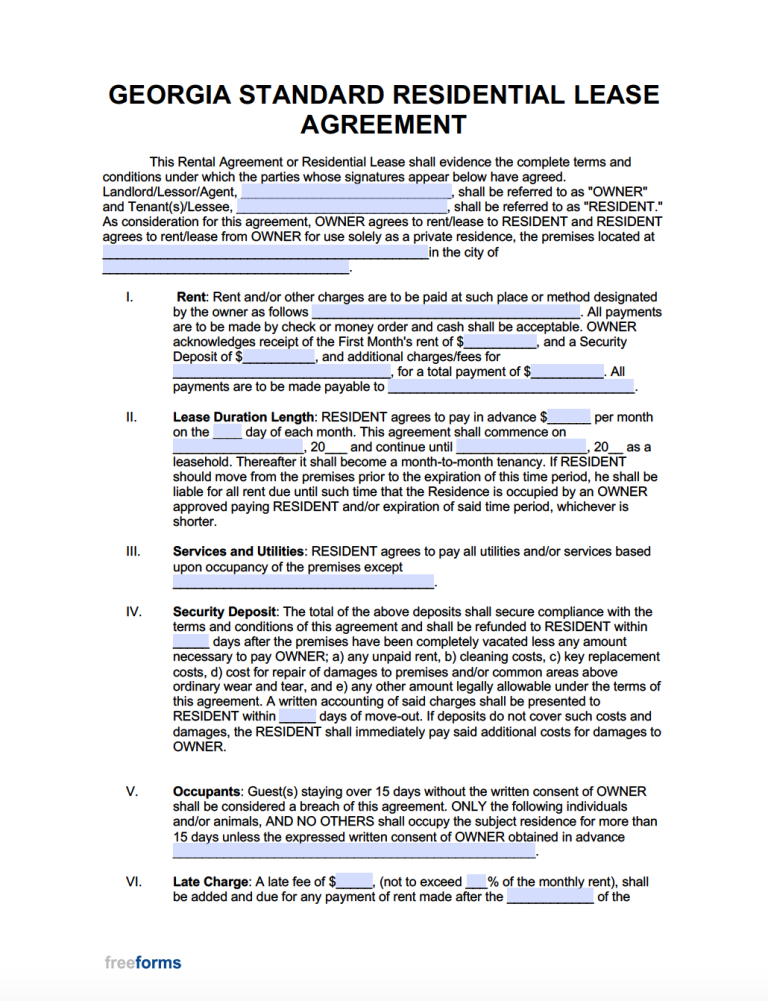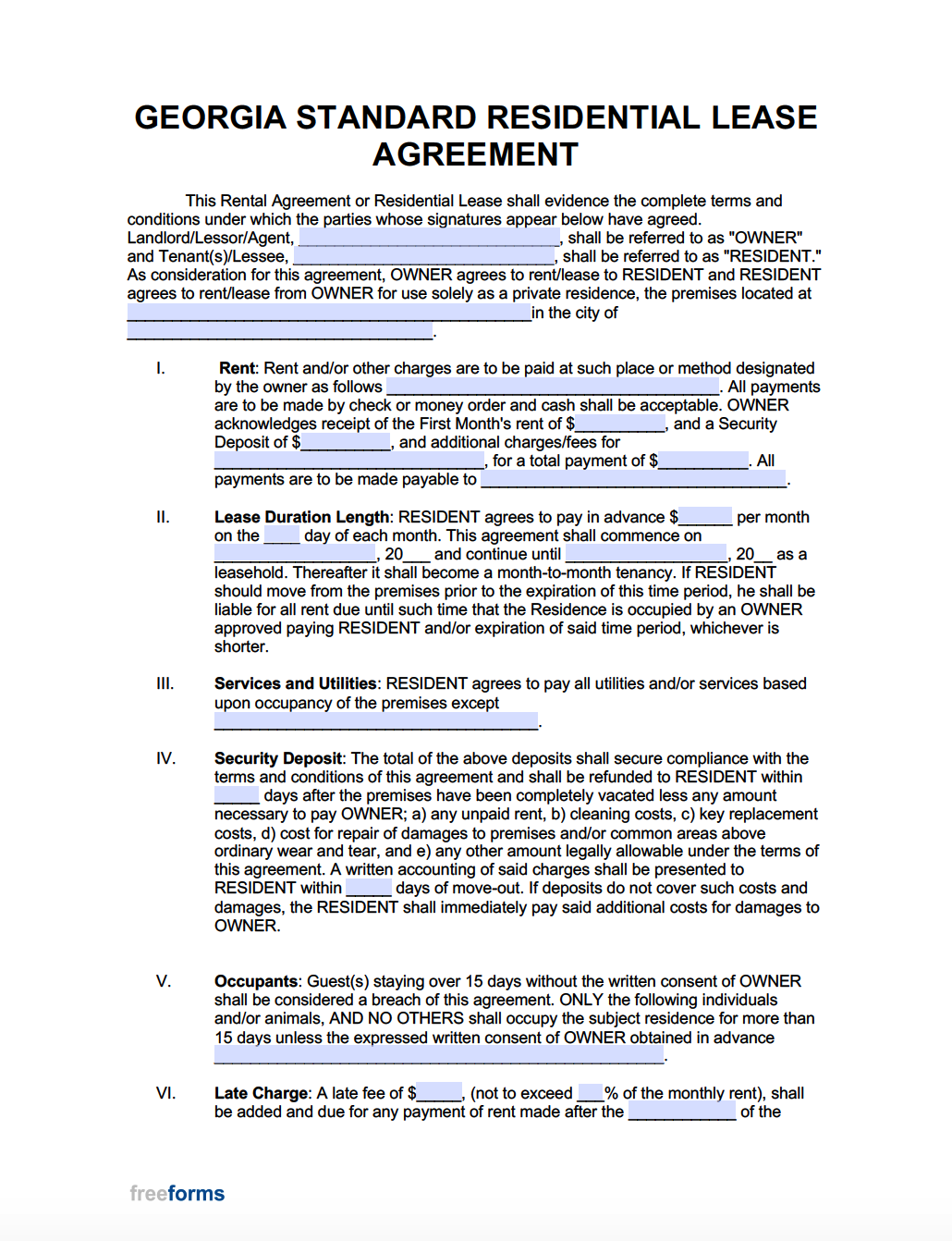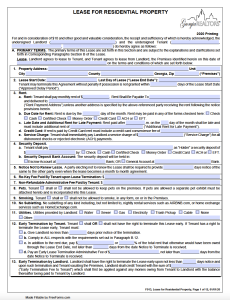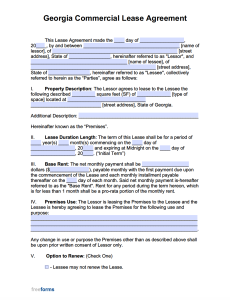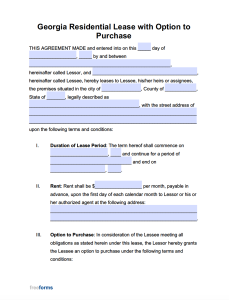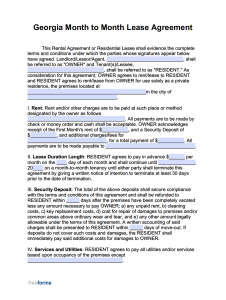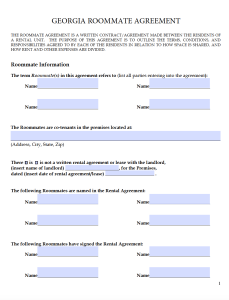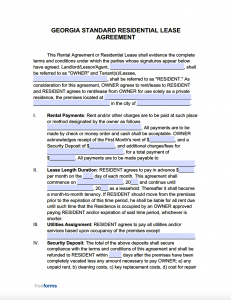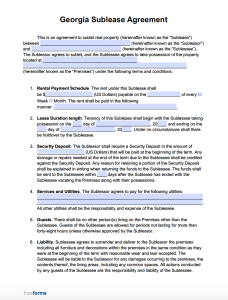Lease Agreements (7)
|
Download: PDF |
|
Download: PDF, Word (.docx) |
|
Download: PDF, Word (.docx) |
|
Download: PDF, Word (.docx) |
|
Download: PDF |
|
Download: PDF, Word (.docx) |
|
Download: PDF, Word (.docx) |
Required Landlord Disclosures
1.) Death/Disease (§ 44-1-16): If inquired, a landlord or agent acting on their behalf must disclose to the best of their knowledge if a death had occurred within the confines of the property or if there was an individual infected with a contagious disease residing within the premises (unless they are restricted by federal law).
2.) Flood (§ 44-7-20): The landlord must disclose if the property has a history of flooding (at least three (3) times within the past five (5) years).
3.) Lead-Based Paint (42 U.S. Code § 4852d): Including a lead paint/hazard disclosure within a rental or lease agreement for any residential structures dating before 1978 is a federal requirement.
4.) Owner/Agent Identification (§ 44-7-3): Before the start of the occupancy, the landlord or authorized representative must supply the tenant with the names & addresses of the owner (or their agent) and the individual/entity in charge of managing the premises.
5.) Pre-existing Defects (§ 44-7-33(a)): Landlord must provide a list of any defects/damages that may be contained within the property prior to receiving the prospective tenant’s security deposit.
6.) Security Deposit Location (§ 44-7-31): If the security deposit funds are in an escrow account, the landlord is liable to inform the tenant in writing of the account’s location.
When is Rent Due?
Late Fees
NSF Fees
Security Deposit Maximum ($)
Security Deposit Return
Returning to Tenant: Landlords have 30 days to return the deposit once tenants surrender the premises to landlords. (GA Code § 44-7-34).
Itemized List: Georgia expects landlords to provide a list of “exact reasons” with the balance when deducting for damages (GA Code § 44-7-34).
Landlord’s Right to Enter
Standard Entry: Both tenant and landlord must comply with the lease provisions on entry accordingly (Georgia Landlord-Tenant Handbook P. 13)
Emergency Entry: Landlords can enter, specifically in cases of emergency (Georgia Landlord-Tenant Handbook P. 13).
Absence
- Pay or vacate notice (if the rent is delinquent)
- An affidavit stating the case in order to proceed to a demand for possession (GA Code § 44-7-50).
Repair and Deduct
Tenant Breaking a Lease (Early)
- The premises remains uninhabitable (e.g., has not been drained after a heavy flood)
- The issue is not curable through ordinary or reasonable means
- They are no longer living there. (Georgia Landlord-Tenant Handbook P. 12)
Landlord Harrassment: Georgia law ensures that tenants have a habitable premises free from harassment and allows them to seek damages when appropriate (GA Code § 51-9-1), (GA Code § 44-7-24).
Is an Oral Lease enforceable?
Renewing a Lease
Unclaimed Property
Landlord-Tenant Laws
Review Title 44: Chapter 7 – Landlord and Tenant for Georgia’s legal code of conduct between landlords and tenants. Additionally, Georgia’s Consumer Protection Division provides a Landlord-Tenant Handbook summarizing landlord and tenant rights, contract requirements, and eviction policies accordingly.


